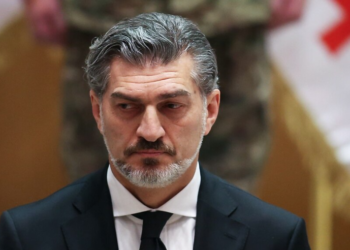The European Court of Human Rights on Tuesday held unanimously that there were “multiple violations” committed by Russian-controlled forces in Georgia’s occupied regions, in a decision on a case submitted by the latter on the human rights toll of a hardening of occupation lines following the 2008 war between the two countries.
The European Court of Human Rights held, unanimously, that there had been:
Violations of Articles 2 (right to life), 3 (prohibition of inhuman or degrading treatment), 5 § 1 (right to liberty and security) and 8 (right to respect for private and family life), Articles 1 (protection of property) and 2 (right to education) of Protocol No. 1 and Article 2 of Protocol No. 4 (freedom of movement) of the European Convention on Human Rights.
The armed conflict between Georgia and Russia in August 2008 led to a process which started in 2009 and is known as “borderization”, blocking people from crossing the administrative boundary lines freely between Georgian-controlled territory and the Russian-backed breakaway Georgian regions of Abkhazia and South Ossetia.
The situation has been referred to as “one of the most painful legacies of the August 2008 Georgia- Russia conflict”. The Georgian Government alleged in particular that people had been killed while trying to enter or exit Abkhazia or South Ossetia, while others had been arrested, detained and/or ill-treated for “illegally crossing” the administrative boundary lines. People had been deprived of land, which they used for farming, families had been separated, and children had been forced to choose between learning in Russian or making long and perilous journeys to Georgian-controlled territory to attend school.
The Court found that it had sufficient evidence, in particular lists of victims, testimonies, media reports and international material, to conclude beyond reasonable doubt that the incidents alleged were not isolated and were sufficiently numerous and interconnected to amount to a pattern or system of violation. Moreover, the apparent lack of an effective investigation into the incidents and the general application of the measures to all people concerned proved that such practices had been officially tolerated by the Russian authorities.
Just satisfaction (Article 41)
The Court held, unanimously, that the question of the application of Article 41 was not ready for decision. There have been three other applications lodged by Georgia against Russia with the Court. There are also around 200 individual applications still pending before the Court against Georgia, against Russia, or against both states, concerning the armed conflict in 2008 or the process of “borderization”.
Other cases
Since 2007, there have been three other Georgia v. Russia inter-State applications:
➢ Georgia v. Russia (I) (application no. 13255/07) concerning the arrest, detention and expulsion from the Russian Federation of Georgian nationals in the autumn of 2006. The Court’s principal judgment was handed down in 2014 and it decided on the application of Article 41 (just satisfaction) of the Convention in a judgment in 2019.
➢ Georgia v. Russia (II) (application no. 38263/08) concerning the 2008 armed conflict between Georgia and the Russian Federation and its aftermath. The Court’s principal judgment was handed down in 2021 and it decided on the application of Article 41 (just satisfaction) of the Convention in a judgment in 2023.
➢ Georgia v. Russia (III) (application no. 61186/09) concerning the detention of four Georgian minors by the de facto authorities of South Ossetia. The Court decided to strike the application out of its list of cases (Article 37 § 1 (a) of the Convention) in 2010.














